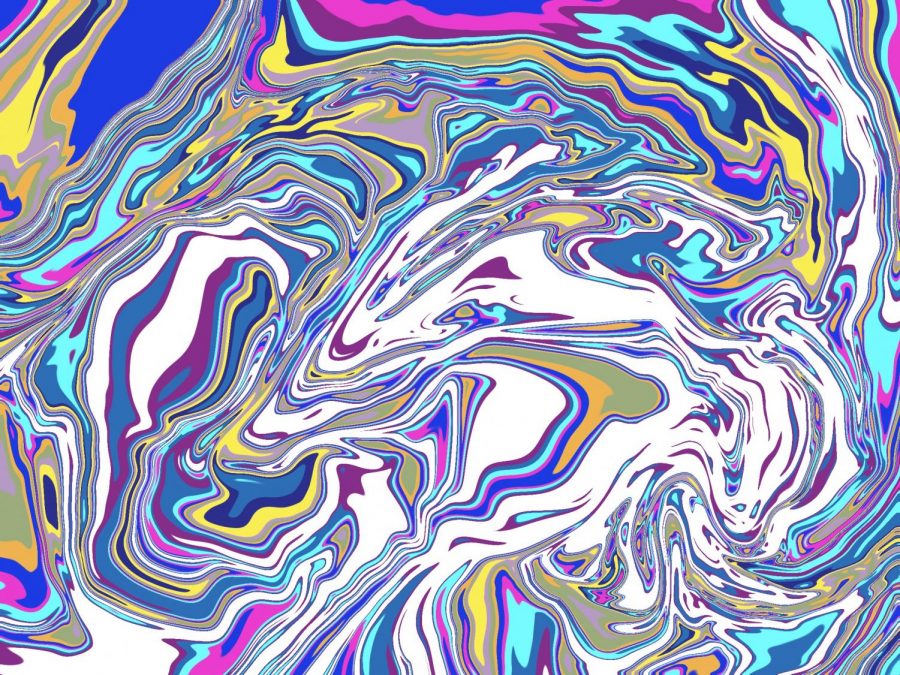Beyond the Self: Why Psychedelics Should Be Legalized
Psychedelic drugs are rocking the boat as more modern trials support their medicinal capabilities and varying media continue to stir public interest. The recent decriminalization of psychedelics in Oregon has raised questions regarding the rationality of the “War on Drugs,” as well as challenged the contemporary politics that surround current United States drug policy.
Many arguments for the legalization of psychedelics are based on their relative harmlessness. Unlike drugs such as alcohol and tobacco, which are legal, psychedelic drugs are extremely safe. Although society has portrayed drugs like LSD and psilocybin as dangerous and, in many ways, all but satanic, psychedelics are beneficial for a variety of reasons, and can be used to help treat psychological disorders, foster economic growth and further human development.
For thousands of years, psychedelics have been used as sacramental instruments of medicine. Since the criminalization of psychedelics in 1971, however, the use of these drugs for medicinal purposes has been prohibited. Many argue that psychedelics were criminalized not because of their hallucinatory capabilities, but because “there is something about them that casts doubts on the validity of reality.” Still, according to Guy Goodwin, a research fellow of the Academy of Medical Sciences, there is preliminary evidence that suggests psychedelic drugs, even with their propensity to cause hallucinations, can effectively treat mental health and eating disorders, furthering the argument that medicalizing psychedelics would be beneficial for remedial purposes.
In 2006, a double-blind randomized controlled study compared the long-term psychological effects that a single high dose of psilocybin (an illegal psychedelic) and methylphenidate (an FDA-approved drug to treat ADD and ADHD) had on healthy volunteers. The study found that there were significant psychological improvements among the volunteers who used psilocybin in comparison to those who used methylphenidate. On top of this, more than half considered their psilocybin experience to be “among the most personally meaningful experiences of their lives.” In 2016, three DB-RC (database-recovery control) trials were done to assess the impact that a single dose of psilocybin would have on cancer patients with depression. All three trials saw immediate anti-anxiety and depression effects post-psilocybin. Research has also found that psilocybin significantly improves obsessive compulsive disorder symptoms and alcohol dependence. Studies done on the positive effects that LSD has on anxiety and the benefits of using ayahuasca as a depression treatment helps widen the argument around medicalizing psychedelic drugs.
The advantages of psychedelics go far beyond the medical field, however. The legalization of psychedelic drugs could bring many economic benefits, too. Prescription drugs currently take more than a decade to develop, and on top of that, can cost over $2.6 billion. According to Tania Gonsalves, an analyst for Canaccord Genuity Capital Markets, psychedelic drugs see a 30 percent reduction rate in development time and cost, which in turn, significantly increases its market size. In September 2020, the projected market size for psychedelic drugs was estimated to be as high as $100 billion. Data Bridge Market Research is projecting a CAGR (compound annual growth rate) of 16.3 percent for psychedelics within the forecast period of 2020 to 2027.
The revolutionary capabilities of psychedelics lie first and foremost in their capacity to impart unity and remembrance of who and what we truly are. Psychedelics give access to a higher state of consciousness. They have the power to redesign contemporary political and economic structures, destabilize social roles and redefine modern civilization. Many arguments for psychedelic legalization are in regards to the benefits that psychedelics have on human development. Psychedelics are said to push the “reset button” in the brain through the release of dopamine and norepinephrine neurochemicals. According to Jules Peck, a fellow of the New Economics Foundation, psychedelics help to unlock the brain’s out-of-the-box thinking and complex recognition patterns. When using psychedelics, endorphins and anandamide is released, switching off the DMN (default mode network) in the brain, causing the ego to die. And even though the development of the DMN helped in the evolution of the human species, there are many disadvantages, including egoism. “So much of human suffering stems from having this self that needs to be psychologically defended at all costs,” Matthew Johnson said, a professor of psychiatry and behavioral sciences at John Hopkins. “We’re trapped in a story that sees ourselves as independent, isolated agents acting in the world. But that self is an illusion.”
There’s strong evidence to suggest that psychedelic experiences accelerate psychological change. For example, there is research that indicates psychedelics impact political thought. According to Robin Cahart-Harris, a psychologist and neuroscientist at Imperial College London, people’s politics seem to become more “mutable.” Shifts towards values that propagate inclusivity and communitarianism are apparent in psychedelic users. As Cahart-Harris puts it, “The compounds may have a political effect. Many believe LSD played precisely that role in the political upheaval of the 1960s.”
The benefits of psychedelics and the effects that psychedelic drugs have had on people’s lives extends far beyond therapeutic, economic and human developmental impacts. The power inherent in psychedelic drugs, the disruption of thought, the dissolvement of separation and the mere death of ego… These are the biggest reasons why psychedelic drugs should become legal. Take if from WikiRando, a Reddit user who explained his experience with ayahuasca. “I got washed away and dissolved into this gigantic river of life. I saw beyond death and saw my indestructible core. My fears and concerns melted away knowing my pure, eternal nature. Life is just a flowing bundle of joy. Thank you, sacred ayahuasca. There are no words that can express my joy and gratitude.”
Your donation will support the student journalists of Saint Louis University.





Marek • Dec 5, 2020 at 2:20 am
Great article. Do one on “Takiwasi”.
Howard Whitehouse • Nov 30, 2020 at 4:29 pm
The title should be not beyond Self but to an expanded understanding of the Self as dynamic, participatory, psychoid, & archetypal in its Nature.